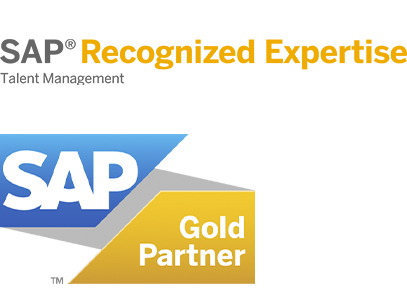
We live in a time when the fundamentals of work are being boldly questioned and tested. Our current conversations about changes in the workplace would have been unimaginable just 20 years ago. Recent headlines narrate the return to the office, the "quiet resignation," labor shortages, the gig economy, employee expectations, employee mental health and even the morality of work.
But there is one organizational role that remains the cornerstone of the employee experience: the Human Resources Manager. In the workplace, job satisfaction and employee engagement are strongly linked to the quality of the relationship an employee has with his or her direct manager. As the saying goes: people leave managers, not companies. A Gallup study found that "70% of the variance in team engagement is determined solely by the manager."
"The manager is the employee's front line for experiencing the job and the organization," says Dr. Lauren Park, human resources (HR) research scientist on the SAP SuccessFactors Growth and Insights team. The team conducted a study with 31 HR leaders across multiple regions and industries to discover how the role of the people manager is transforming to improve the employee experience. "With recent changes in the social and economic space, we see this [role] becoming even more important."
Drivers of change in people management
The team's research identified three driving forces behind the transformation of people management. For the roles and industries where it is relevant, the biggest adjustment is the shift to hybrid work. Managers and employees no longer share the same workspace, which means communication must be more intentional to overcome the lack of nuanced information from in-person interactions. In addition, managers must now focus on managing results rather than processes.
Changing employee expectations are also transforming people management. Employees are rethinking how work fits into their lives and have become more vocal in demanding better experiences. "We see a dynamic shift in power from some managers who look to their team to make them successful to managers who are really there to make those people successful and help them improve their work and non-work experiences," Park says.
Technology is also shaping the role of the people manager to be much more human-centric. As administrative tasks become more automated, HR Managers will be able to spend more time on people-centric work, such as fostering growth and development, enhancing team culture, and demonstrating interest.
People-oriented competencies for the future
HR Managers in the future of work will need very different competencies from the supervisors and task managers that characterized some people management practices in the past. SAP SuccessFactors researchers have given a lot of thought to what competencies managers will need to succeed in building employee engagement.
"With input from our customer research participants, we developed a competency model of what people management looks like in this new world of work," says Park, who will present these research insights at the "Transform People Management to Improve Employee Experiences" session at SuccessConnect 2022 on Sept. 14.
"The core competency required for people management is and always has been the ability to communicate and influence others. But what is becoming increasingly central to a manager's role is demonstrating concern and care, not only for their team but for themselves. This is where we see a shift: HR Managers are expected to do this more than ever, and feel prepared to take on this role."
Other competencies include fostering growth and development, including the continuous improvement of your skills and those of your team. It is also up to the HR Manager to build a positive team culture that fosters psychological safety and growth. The traditional competency of specifying and evaluating work remains important to the role of the people manager, including knowing when and how to give employees autonomy to complete their work in balance with the needs of the organization.
Developing the Next Generation of Human Resource Managers
Organizations should take care to identify and develop employees to be managers. Some of the personal traits that are emerging in HR leaders' comments include adaptability, empathy, resilience, conscientiousness, honesty, humility, and tolerance for ambiguity and uncertainty.
With consideration of these competencies and traits, it becomes clear that not everyone is destined to be an HR Manager. "Traditionally, organizations would pick the best high-performing individual contributors to become HR leaders," says Park. She notes that this approach has been controversial in the past and says, "The consensus is that it will not be successful in the future."
Deliberate succession planning is necessary to ensure that employees with recognized people management skills are effectively placed in new roles.
Each organization will differ in its approach, but Park believes there is an urgent need to identify and develop new HR Managers who can improve employee experiences. "We saw different levels of maturity in the clients we spoke with," Park says.
"I would say it is becoming increasingly important, perhaps exponentially so, as we see changing employee expectations continue to shape the way organizations develop their policies and strategies."
Source: news.sap.com





































































































































































































































































